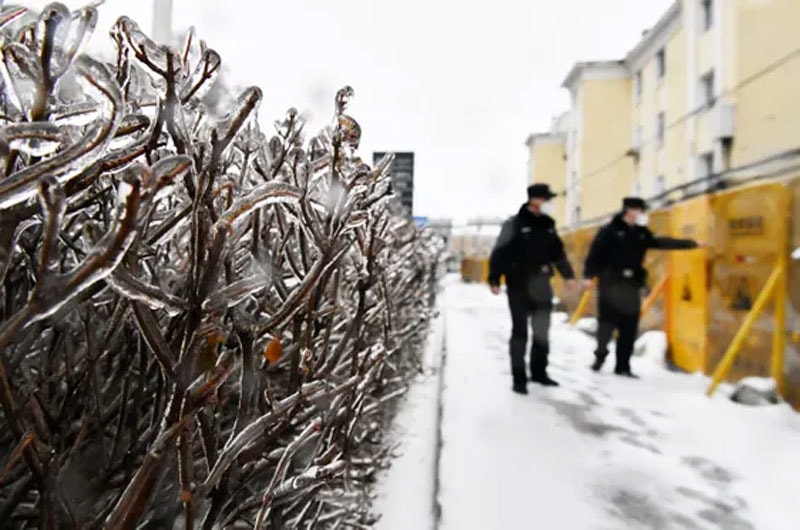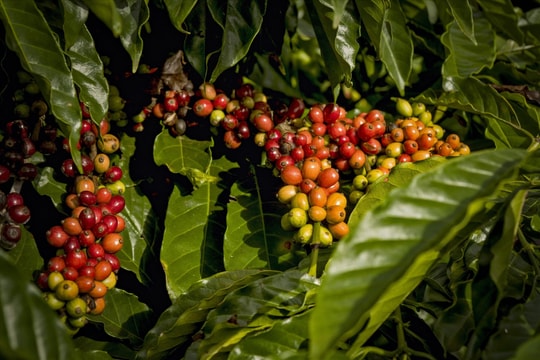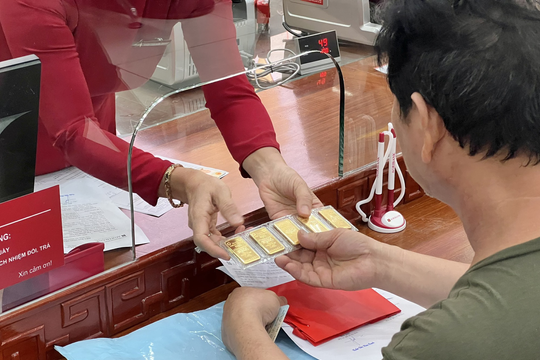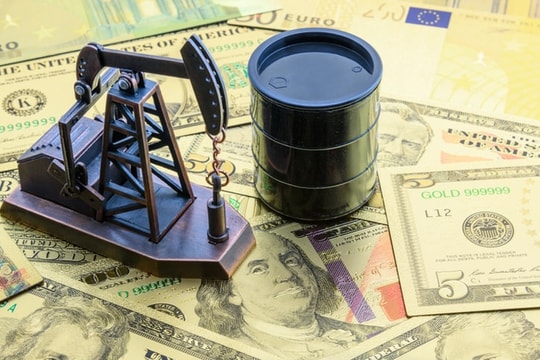The world has 420,500 new infections, China rewards money for tracing Covid-19
The world has had 420,500 new infections and more than 6,700 deaths from Covid-19 in the past 24 hours.
According to data on the global statistics site Worldometers, as of 6:00 a.m. on November 10,Covid-19 pandemiccontinues to attack 222 countries and territories, causing a total of 251.5 million infections and nearly 5.08 million deaths.
Over the past day, the US led the world in the number of new infections (nearly 54,500 cases) while Russia led in the number of new deaths (1,211 cases).
The complicated developments of the epidemic in Russia show that the week off (October 30 - November 7) to prevent the spread of the virus has not been effective. This has forced the authorities to maintain restrictive measures when people return to work, such as ensuring 30% of business employees work remotely or strictly implementing regulations on wearing masks on public transport.
|
| China pursues a “No Covid-19” strategy and has implemented many measures to eliminate the epidemic. Photo: Xinhua |
Chinese city rewards virus tracing
Residents of Heihe city in Heilongjiang province can receive up to 100,000 yuan (354 million VND) if they provide information to help trace the Covid-19 outbreak.
The Guardian reported on November 9 that the bonus policy was introduced in the context that Heilongjiang recorded a total of 240 infections and local authorities declared a "people's war" against Covid-19.
"We hope that the public can actively cooperate in tracing the virus and provide clues for the investigation," Heihe authorities said in a statement. They also called on the public to immediately report cases of poaching, animal smuggling or people crossing the border for fishing, and warned of severe punishment for anyone who deliberately conceals relevant information.
China's National Health Commission reported 62 new cases on November 8 and 43 on November 9, bringing the total to more than 940 in at least 20 provinces since the start of the month. This is the most serious outbreak in China since the outbreak in Wuhan in late 2019.
The Chinese government is pursuing a radical epidemic suppression strategy, building a series of increasingly stringent measures to try to eliminate SARS-CoV-2 from the community.
Thailand to buy 2 million Molnupiravir pills
The Thai Cabinet has just approved the Ministry of Health's proposal to purchase 50,000 courses of Molnupiravir, the world's first oral drug used to treat Covid-19. This is equivalent to 2 million pills.
On November 9, Health Minister Anutin Charnvirakul said Molnupiravir will be used as a reserve to ensure pharmaceutical security and to treat Covid-19 patients in priority groups, including those over 60 years old and patients with any of seven underlying diseases: chronic respiratory disease, cardiovascular disease, chronic kidney disease, neurovascular disease, cancer, diabetes or obesity.
Thai media quoted Minister Anutin as saying that the antiviral drug Favipiravir will be used for early-stage Covid-19 patients with mild symptoms. A course of Favipiravir costs 1,000 baht (about 30 USD) or more if imported, while a course of Molnupiravir costs about 10,000 baht. Doctors will decide whether to use these drugs for each patient.
Molnupiravir, developed by US pharmaceutical companies Merck, Sharp and Dohme (MSD) and Ridgeback Biotherapeutics (Germany), is the first antiviral drug to treat Covid-19 that can be taken in pill form instead of by injection or intravenous administration. The drug is being marketed under the brand name Lagevrio.
India to resume vaccine supplies to COVAX
Reuters news agency, on November 9, quoted two sources as saying that India could resume supplying Covid-19 vaccines to the COVAX vaccine access mechanism in the coming weeks, after a 7-month pause due to the outbreak.
According to sources, COVAX members have started planning to allocate Covishield vaccine - AstraZeneca's version of the vaccine produced by the Serum Institute of India (SII) - to many countries around the world.
"SII will need to confirm orders, labeling, packaging and export authorization for each shipment. Therefore, the first batches of vaccines - if approved for export by the Indian government - will be delivered in the next few weeks at the earliest," the source told Reuters.
SII's vaccine production has nearly quadrupled since April, now reaching 240 million doses per month. Currently, neither SII, the Indian Ministry of Health nor the WHO have commented on the above information.
On the same day, the Indian Ministry of Health confirmed that the country has a surplus of more than 159 million vaccine doses due to a slowdown in vaccination progress after reaching the milestone of 795 out of 944 million people over 18 years old in the country having received at least one dose and 37% having received full doses.
Last month, SII CEO Adar Poonawalla said the institute could supply 20-30 million doses of vaccine per month to COVAX in November and December, and would gradually increase the number from January 2022 after meeting domestic demand.









